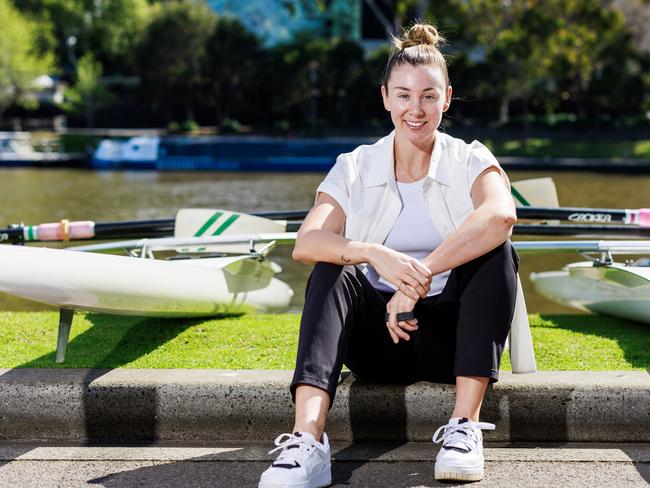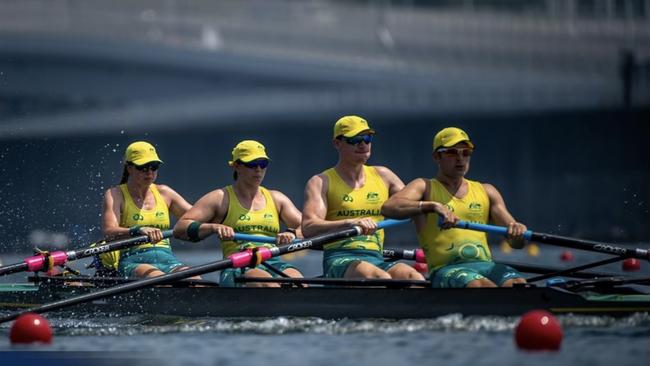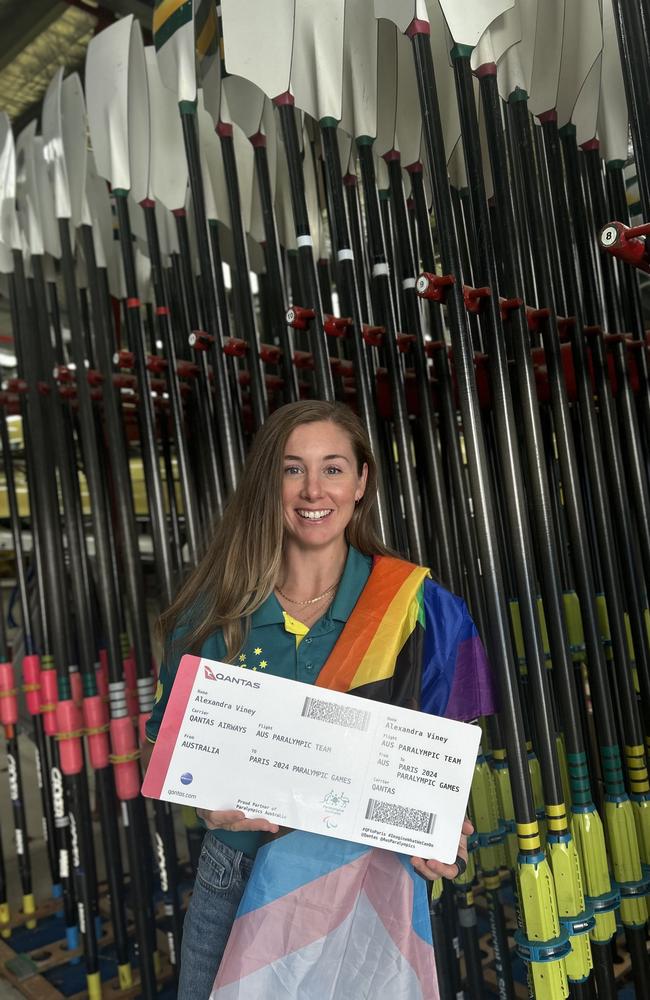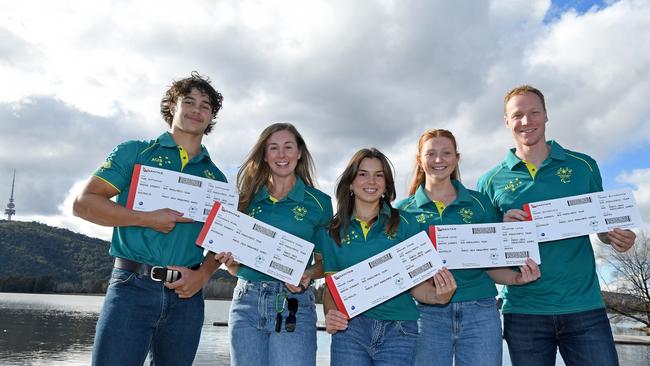Paralympics podium the goal for Tassie rower
It’s been a long journey back to her first sporting love of rowing after a car accident in 2010. And Tassie rower Alexandra Viney is eyeing off the podium at the Paralympics.

Sport
Don't miss out on the headlines from Sport. Followed categories will be added to My News.
A serious car crash as a teenager hasn’t stopped Tasmanian dual-Paralympian Alex Viney pursuing her sporting dreams as she prepares to row for gold in Paris.
Aftera high speed accident at Launceston in 2010 involving a drunk driver aged just 18, which left her with major injuries to her left elbow, forearm and hand, Viney stepped away from her first sporting love for several years and coached school Aussie Rules in Geelong.
But after coming fourth in the PR3 mixed coxed fours at Tokyo in her maiden Paralympics, the 32-year-old has her sights set on a medal.
Viney and crewmates Thomas Birtwhistle, Susannah Lutze, Tobiah Goffsassen and cox Hannah Cowap begin their campaign in the heats on Friday night (8.10pm AEST), with repechage 7.30pm Saturday and finals on Sunday.
A chance conversation with a spectator at a football game in Geelong steered Viney down the Paralympics path.
The former Launceston Grammar rower took just three months to be selected for the Australian senior team.

She made her international debut in 2019, when she helped the PR3 mixed coxed four qualify a spot at the 2020 Paralympic Games
“The moment that I was first presented with my Australian uniform I just sat there with it on the floor in front of me and I could not believe this was happening,” she said.
“The little girl with such a big dream was about to pull something on and belong.
“I know that when I sit in a boat in Paris that I’m going to represent what it means to belong, and to embrace every aspect of yourself.
“To do that with your head held high is probably my proudest achievement.”
Now representing Melbourne’s Mercantile Rowing Club, Viney said rowing has played a significant role in her recovery.
“Rowing is such a simple sport, it’s relentless but so rewarding,” she said.
”If you’re in a boat with someone else, you both need to be in the right head space to get the outcome you want.
“It’s a sport of efficiency paired with teamwork.”

Viney told The Mercury after her selection in July her return to rowing had helped her find her home in sport.
“Being someone who had acquired my disability in that car accident, it was society’s perception of what it meant for someone to have a disability that actually stopped me from being involved in sport,” she said.
“It wasn’t from lack of trying or I wasn’t interested, it was just the pathway wasn’t as clear cut as it was for an able-bodied 18 year old.
“Because I didn’t fit the textbook of what the pathway looked like, especially in rowing, those doors just seemed to be slammed shut on me.
“Working my way back into sport in another direction, which ended up being coaching, that was me desperately trying to stay involved in sport.
“I went down the pathway of football and ended up working quite closely with women’s footballers.
“I resonated quite strongly with those athletes because they were finally getting their chance to be an athlete. I wanted it for myself, and I wanted it for them as well.”

After that fateful conversation with a spectator, it took about six months for Viney to get back into a boat in November, 2018.
“It took that long to unpack all the ableism that had been compressed on top of me for eight years, battling to find my way in sport,” she said.
“For six months I was to-ing and fro-ing about how I can compete in rowing, but when I did finally sit in the boat, three months later I made the national team.
“For eight years I didn’t know where I fit into sport and where I belong. But in three months I cemented my place on the Australian team and fully embraced everything I wanted to be.”


